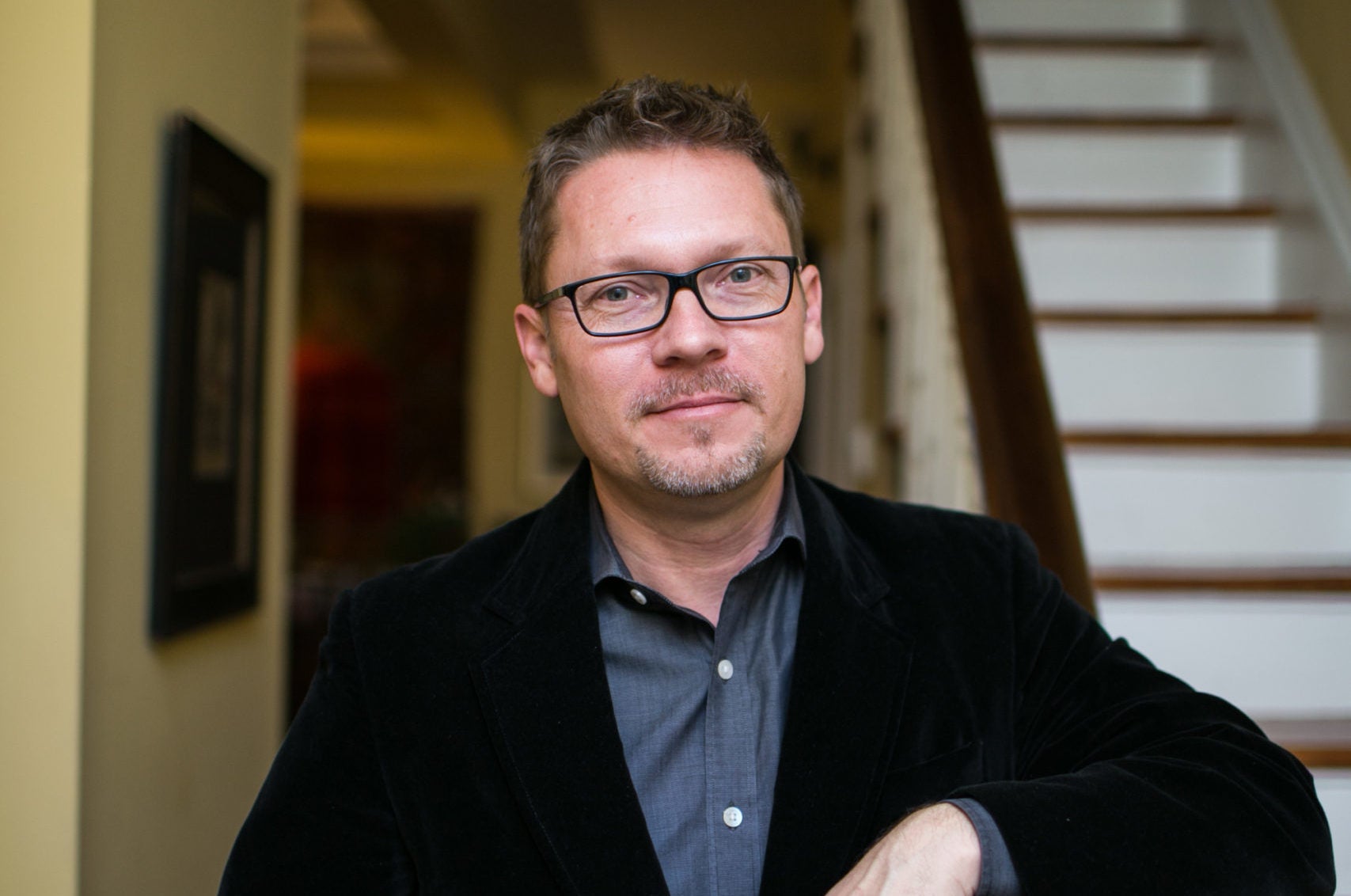Faculty Member and Alumnus Receive 2020 Anisfield-Wolf Book Award for Nonfiction and Poetry
Charles King, professor and chair of the Department of Government, was awarded the Anisfield-Wolf Book Award for Nonfiction for his latest book Gods of the Upper Air. This award, dedicated to honoring publications that have made contributions to the understanding of racism and diversity of human culture, was also given to one of the subjects of King’s book, Zora Neale Hurston, in 1943. Georgetown alumnus Ilya Kaminsky (C’01), also received this honor in the category of poetry for his book Deaf Republic.
About the Gods of the Upper Air
Gods of the Upper Air is a collection of the biographies of cultural anthropologists Franz Boas, Margaret Mead, Zora Neale Hurston and Ruth Benedict who researched the categories of race, gender, sexuality, ethnicity and nationality that our society still struggles with today.
“It’s about a group of people who were grappling with these issues in the 1920s and 1930s by travelling to some of the most exotic places in the world to try and figure out how people very different from themselves organized society,” says King. “What they discovered is that how we see the world is determined not by our innards but by what happens around us, by the society and culture in which we have lived.”
This group of anthropologists, as told in King’s book, became some of the most important thinkers, writers and scientists of their generation.
“These individuals helped shape the debates that we have today about the relativity of culture and morality, about the way in which our ideas are situated in time and space,” says King.
King describes in detail the ethnographic expeditions that each of these researchers embarked on such as Margaret Mead’s travels to Papua New Guinea or Ruth Benedict’s research of Japanese culture. His favorite anthropologist, however, was Zora Neale Hurston who travelled to Haiti to learn about this society’s culture and rituals.
Perhaps more widely known as a novelist for books like Their Eyes Were Watching God, Hurston was an expert anthropologist who spent more time in the field than several of her colleagues. King previously stated that she had an incredible ability to inhabit the places and societies she visited, making her his top choice as an expedition partner.
“Whether she was going to a juke joint on the gulf coast and getting into a knife fight, or going through the voodoo initiation rituals in New Orleans and Haiti, she would be the person I would want to tag along with,” says King.
The author’s admiration for Hurston made receiving the Anisfield-Wolf Award particularly significant.
“Accepting this award is especially meaningful given the long history of the Anisfield-Wolf prize in recognizing works that contribute to combating racism and lifting up the beauty and power of a plural world,” says King. “The fact that Zora Neale Hurston was a recipient in 1943 makes it all the more special to me personally. She is a central figure in my book and in fact supplied the title for Gods of the Upper Air, which is a phrase from her memoir Dust Tracks on a Road.”
Georgetown Represented by Two Categories
In addition to Hurston, this American literary award has honored many individuals whose written work has helped foster understanding around diversity and racism since its inception 85 years ago. The categories of poetry, fiction, nonfiction and lifetime achievement have had notable past winners including Langston Hughes (1954), Martin Luther King, Jr. (1959) and Toni Morrison (1988).
While King was selected for this year’s nonfiction category, Georgetown alumnus Ilya Kaminsky was chosen as the awardee for poetry. His book, Deaf Republic, imagines a protest where a gunshot deafens those involved.
Kaminsky, who is himself deaf, was an English major at Georgetown. He is the recipient of a Whiting Award, a Lannan Literary Fellowship and a Guggenheim Fellowship, and was also named a finalist for the Neustadt International Prize for Literature. He was a finalist for the 2019 National Book Award.
Both authors represent the importance of writing in each of these mediums, and underscore the impact that a Georgetown education can have both inside and outside its gates.
“Charles King is a brilliant scholar who has a keen ability to come up with unique and meaningful research agendas, engage in the work of scholarly discovery, and find ways to communicate those discoveries eloquently,” says Chris Celenza, dean of Georgetown College. “We are lucky to have him here at Georgetown, in this environment that nourishes creativity, the kind of creativity that nourishes poets like Ilya Kaminsky.”
-by Shelby Roller (G’19)
